Adam's Heart Valve Surgery Blog – Page 69
Mike’s Testimonial For Getting Second Opinions BEFORE Heart Surgery
Written By: Adam Pick, Patient Advocate, Author & Website Founder
Published: May 14, 2025
Yes, I’m going to keep stressing this point for all the future patients and caregivers reading this blog…
Please get a second opinion! Today, according to a patient survey, 35% of patients fail to do so.
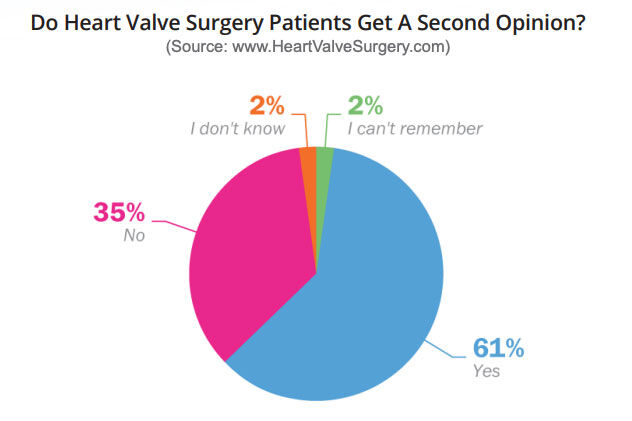
Here is a great patient story that illustrates the value of second opinions:
Dear Adam,
My name is Mike. I am 47 years old and in 2003 was diagnosed with mitral valve prolapse. I was experiencing some bothersome leaky heart valve symptoms such as palpitations, insomnia, shortness of breath, and slight numbness in my extremities. The symptoms have been pretty well controlled with medication, although I do have my “off” days. I continue to bike ride and run on my treadmill regularly.
My main reason for writing is to stress the fact (as you have too) for obtaining a second opinion. I have annual echocardiograms and stress tests to monitor my valve.

Pumphead vs. Dumbhead… From Spike
By Adam Pick on November 8, 2008
In the past we’ve talked about pumphead, the post-operative condition that negatively impacts the cognitive capabilities of some heart surgery patients. Well, Spike (from Nevada) just emailed me a new patient term. He calls it “dumbhead”.
Although Spike’s new term is quite playful, his story (posted below) illustrates several key concerns for heart valve surgery patients. So you know, Spike is a 63-year old male, medically retired US Marine. His valve surgery was performed in Las Vegas at the Summerlyn Heart Institute by Dr. Demetri Mavroidis.

Dear Adam,
I had a mitral valve replacement (tissue valve) and a maze procedure on September 9, 2008. I was released from the hospital five days later on September 14th.
From Porcine Valves To The Carmat Artificial Heart
By Adam Pick on November 8, 2008
Talk about an incredible doctor and cutting-edge technology!
I just learned that porcine valve replacement pioneer, Dr. Alain Carpentier, is leading the development of a new, artificial heart. Carmat SAS, Carpentier’s France-based company, recently landed over $15 million in start-up funding and $50 million in government grants to develop the artificial heart using plane technology.
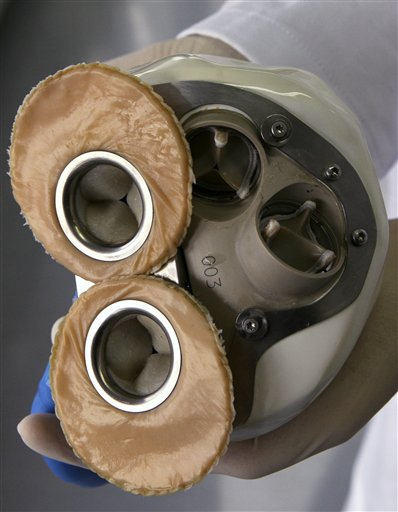
The new device, shown above at a news conference in Paris, has only been tested in animals. Its makers hope it might one day help people survive without needing a human heart transplant.

You may recall that Carpentier won the 2007 Lasker Award, alongside Albert Starr, for his work with porcine heart valves during the 1960s.
Keep on tickin!
Adam
Fen-Phen Guilty Of Long Term Heart Valve Damage
By Adam Pick on November 8, 2008
The older I get… The more I realize there are no short-cuts in the game of life. Whether it deals with money or weight loss, the “sure thing” is seldom a sure thing.
An unfortunate example… A new study published by BMC Medical just revealed some disastrous findings about the use of Fen-Phen for weight loss and its long-term side effect… Heart valve damage known as mitral regurgitation and aortic regurgitation.
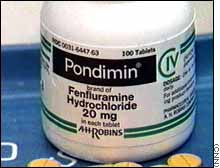
To learn more, read this interesting article by WebMD Health News by clicking “Fen-Phen Damages Heart Valves… Several Years Later”.
Keep on tickin!
Adam
Barack Obama, Me And My Goose Bumps
By Adam Pick on November 5, 2008
If you’re a long-time subscriber to this blog, you know that I stick to the fundamentals here. I research and write about heart valve surgery in this blog to help patients and their caregivers. Of the 1,453 pages of information on this website, only 2 pages have strayed from this topic.
This morning, I feel compelled to deviate from the norm.
By the title of this blog, you may infer that I am going to “get political” and praise the future President of the United States, Barack Obama.
Well… You are somewhat right. However, I am not going to wax poetic on his policies, the brilliance of his campaign, his hope for the future, etc.

Instead, I am simply going to focus on the thousands of tiny goose bumps Barack Obama gave me during his acceptance speech at Grant Park in Chicago last night.
Margaret’s Mechanical Heart Valve Replacement Still Clicking… 27 Years Later
Written By: Adam Pick, Patient Advocate, Author & Website Founder
Page Last Updated: June 6, 2025
I just received this interesting email from Margaret. She had mechanical valve replacement surgery almost 27 years ago. I thought you would appreciate her thoughts about surgery and the clicking noise of mechanical heart valves.
Adam,
I just received your book and so far it’s great. I’m not like most people who is buying this to understand what to expect but to see what has changed.
I’m 39 yrs old and had my aortic valve replaced when I was just 13 years old. Yes, that is correct 13 years old. When I had it done, I was given just a month to live without it. So far, I have yet to speak or hear of anyone with a valve as long as I have.
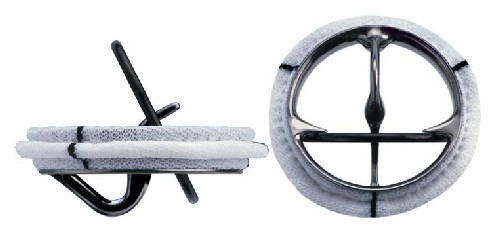
Indications For Aortic Valve Replacement Due To Aortic Stenosis
Written By: Adam Pick, Patient Advocate, Author & Website Founder
Page Last Updated: May 11, 2025
David just wrote me an email that reads, “Hi Adam – I’m really confused right now. My doctor says I have severe aortic stenosis which could require heart valve replacement. Strange part? I feel fine. Can you help me better understand what are the key indicators for aortic valve replacement?”
Many patients believe that symptoms are the key indicators for valve operations. However, as I and others can attest, patients can be asymptomatic and still be very ill. That said, the key indicator for valve replacement due to aortic stenosis deals with the size of the heart valve and the rate of blood through the valve.
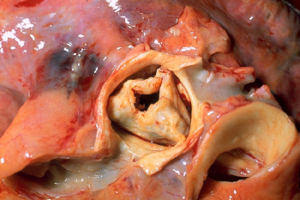
Example Of Aortic Valve With Severe Stenosis
Mechanical Heart Valve Sizers… On eBay?
By Adam Pick on November 2, 2008
Lately, I’ve been doing a lot of shopping on eBay.
Robyn (my wife) is pregnant and I’m finding that most baby/nursery products are 20%-30% cheaper on eBay than at Babies R Us or Right Start. Earlier today, I was curious… So, I typed “heart valve” into the search field at eBay. Guess what I found?
I could not believe it. I actually found an auction for a complete mechanical heart valve sizer kit! In case you didn’t know, mechanical heart valve sizers are used by surgeons during operations to measure the patient’s valve size.

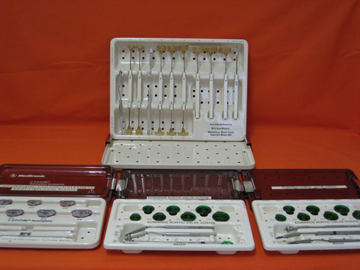
Top 5 INVISIBLE Things Patients Should Bring To The Hospital
Written By: Adam Pick, Patient Advocate, Author & Website Founder
Page Last Updated: May 13, 2025
The day before patients enter the hospital for heart valve surgery, they usually pack a travel bag.
Some patients mistakenly pack a big bag of stuff as if they were vacationing in Hawaii. The reality? You will only need a few, personal items during your time in the hospital.

In thinking about it… I believe the invisible, interpersonal things that patients bring to the hospital are incredibly important. That said, here are my top 5 invisible things that patients should pack in their minds:
Rodney Dangerfield Gets Some Respect… Way Before Heart Valve Replacement Surgery
Written By: Adam Pick, Patient Advocate, Author & Website Founder
Page Last Updated: August 5, 2025
Rodney Dangerfield, who played the iconic role of Al Czervik in the cult-classic Caddyshack, is still quoted when my family and I need a laugh. During the 1980s, we huddled around our high-tech, Betamax movie system to watch this legendary actor in the incredibly funny, golf comedy co-starring Chevy Chase, Bill Murray and Ted Knight.
As you may know, Rodney Dangerfield (1921 – 2004) is just one of many celebrities that had heart valve repair or heart valve replacement during their lifetime. Other living celebrities who battled heart valve disease include Arnold Schwarzenegger, Mick Jagger from the Rolling Stones, U2’s Bono and many more.

“Nerve Damage After Heart Surgery?” Asks Sean
Written By: Adam Pick, Patient Advocate, Author & Website Founder
Page Last Updated: August 1, 2025
I just received a concerned email from Sean about nerve damage after heart surgery. I provided some thoughts for Sean below, but I’m curious to know if you experienced this heart surgery complication. Here is Sean’s story:
Hi, Adam!
I’m recovering from aortic valve and aortic root replacement surgery. It turned out my problems were congenital – a bicuspid aortic valve and a related aneurysm of the aortic root. My faulty valve and aneurysm waited patiently until I was 60-years old to need replacement! Nice of ‘em, huh?!
I am hoping you and your readers can provide some useful information, either scientific or anecdotal. I woke up in the ICU to notice that the left side of my left hand was “asleep” – you know, how your foot might “go to sleep” if you positioned your leg improperly for too long.
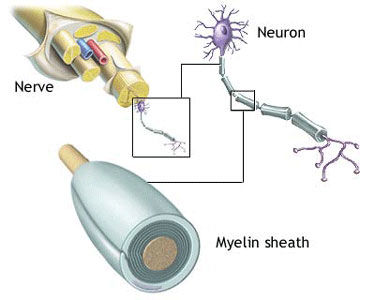
Calcified Heart Valves Vs. Normal Heart Valves
Written By: Adam Pick, Patient Advocate, Author & Website Founder
Page Last Updated: May 12, 2025
Are you like me?
When I was diagnosed with severe heart valve disease, I wanted to learn as much as I could about aortic stenosis (my valve disorder), aortic valve surgery and the recovery from open heart surgery.
Specifically, during my second-opinion with Dr. Chaikin, I learned that my heart valve leaflets had narrowed due to the calcification of my bicuspid aortic valve. As a result, blood flow through my heart was compromised which caused my heart to enlarge. This was a dangerous precursor to congestive heart failure. Although I was asymptomatic, I was not in good health.
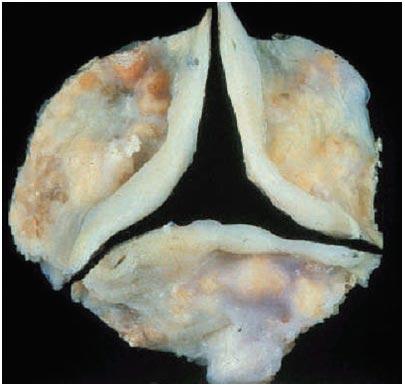
Calcified Aortic Heart Valve
Anyways… I was just doing some research on heart valves when I came across this incredible picture of an aortic valve that suffers from aortic stenosis due to calcification. As many of you enjoy learning about the anatomy of your heart and heart valves, I decided to post the picture (above) for your review. If you look real close, you can see actually the calcium deposits on each of the three heart valve flaps. Pretty interesting, right?
Patient Receives $9.8 Million Malpractice Verdict In Heart Valve Lawsuit
By Adam Pick on October 14, 2008
I stress A LOT of things for patients to “watch out for” as they prepare for heart valve surgery. One of the most critical, potential pitfalls in this complex process is poor surgeon selection. As we all know, there is risk in any type of surgery. But, finding the right cardiac surgeon (with extensive experience) can minimize that risk.
It’s a sad fact… I receive emails from caregivers whose loved ones did not make it through surgery. Those are the toughest emails to read. The sadness and anger is overwhelming. Even with all the good happening in the heart valve community, mistakes are made.

On that point, I just read an unfortunate story about Latricia Satterwhile, a mitral valve surgery patient. I am posting this story to emphasize the need for patients and caregivers to actively research their medical staff and facility. Here is Latricia’s story from the Herald-Leader newspaper in Lexington, Kentucky:
A $9.8 million civil verdict was returned in a lawsuit filed by a Lexington hairdresser who became paraplegic after a routine heart surgery.
Karen’s “Best Piece Of Advice” For Patients
By Adam Pick on October 12, 2008
Over the years, I have collected many insightful and inspirational quotes from patients about their heart valve surgery procedures. Personally, I learned A LOT from former patients as I prepared for my own aortic valve replacement. Receiving direct advice from patients really helped me understand the potential ups and downs of heart surgery.
That said, I am going to start posting these quotes in this blog to support future patients and caregivers. I really hope these quotes help you.
The first “Best Piece of Advice” comes from Karen in Florida. It’s a quick, one sentence thought that focuses on the fear, uncertainty and doubt relative to heart surgery. Here it is…

I really appreciate that thought – especially considering our prior discussions about F.E.A.R. (the acronym for Fantasized Experiences Appearing Real.) As Karen alludes, your mind can play some awful tricks on you leading up to the operation. However, heart valve surgery statistics show that most patients live longer, healthier lives as a result of cardiac surgery.
Keep on tickin!
Adam
Is Paul’s Scar On The Wrong Side?
By Adam Pick on October 11, 2008
Hmmmmmmmmmm.
Did Doctor Vaughn Starnes, one of leading heart valve surgeons, make a mistake when he performed minimally invasive aortic heart valve replacement on Paul? Scroll down and read Paul’s email to find out why his incision scar is on the right side of his chest!
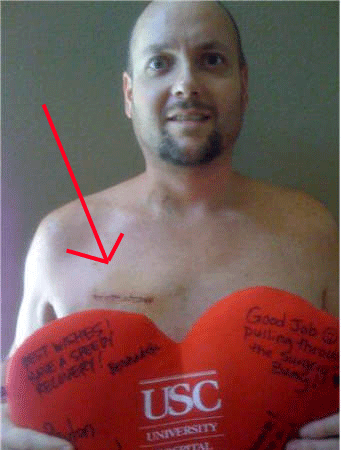
Hi Adam,
Gloria’s Mismanaged Patient Expectations
By Adam Pick on October 10, 2008
Every few days, I receive a detailed email that illustrates just how poorly patients can be prepared for the realities of cardiac surgery.
Case in point… Gloria just sent me a disappointing note about her double valve replacement (aortic, mitral) and valve repair (tricuspid). My face soured and my frustration level soared as I read about each-and-every problem Gloria encountered in the hospital and during her early recovery.

With Gloria’s approval, I am posting parts of her email below to help future patients and caregivers avoid several of the unnecessary pitfalls of heart valve surgery.
Hi Adam,
Several months before surgery was an option, I went into atrial fibrillation.
Echocardiogram Video for Mitral Valve Prolapse With Mitral Regurgitation
Written By: Adam Pick, Patient Advocate, Author & Website Founder
Page Last Updated: June 6, 2025
Matthew has an interesting, video request…
He writes, “Adam – Thanks for your book and blog. I’m 47 years old and in the ‘waiting room’ right now. I have a mitral valve prolapse with moderate mitral regurg. My cardiologist thinks I may need surgery within the next 1-2 years. Curious to know if you have any echocardiograms that show a severe mitral valve prolapse with mitral regurgitation? Thanks, Brian”
Sure thing Brian! Here is an echocardiogram of a mitral valve prolapse. Although the video has no sound, you can see a significant mixture of blue and red colors near the valve. (The colors in the echocardiogram indicate the motion of blood around the mitral valve.)
If you look even closer, you can see that the mitral valve in this echocardiogram has severe prolapse. You can see the failure of the anterior and posterior mitral valve leaflets to seal tightly. Plus, the rampant mixture of red and blue colors in the echocardiogram illustrates significant backward blood flow. Unfortunately for this patient, I believe this is a very diseased mitral valve that may require surgery.
I hope this echocardiogram of the mitral valve prolapse was helpful.
Related Links:
- Echocardiogram Criteria: Mitral Valve Disease
- Amazing 3D Echocardiogram of Heart Valve Disease
- Cardiac Innovation: 4D-MRI Flow
Keep on tickin!
Adam
“How To Use An Incentive Spirometer?” asks Laura Lee
Written By: Adam Pick, Patient Advocate, Author & Website Founder
Page Last Updated: May 12, 2025
Laura Lee is getting ready for her valve surgery. In anticipation of her recovery, she asked me, “Would you please tell me how to use the incentive spirometer so I can start practicing? Thanks for everything! Laura Lee”
To help Laura Lee, I just found this instructional video on how to use an incentive spirometer from Keck Medicine of USC in Los Angeles, California. Fyi, I had my double heart valve surgery at USC nearly 20 years ago.
After Cow Valve Replacement & A-Fib, Kenneth Strokes Best Golf Score Ever
Written By: Adam Pick, Patient Advocate, Author & Website Founder
Page Last Updated: June 9, 2025
This email from Kenneth conjured up an ear-to-ear smile on my face.
As you can read below… Kenneth details the chronology to his best golf score ever. I guess bovine (cow) valve replacement and atrial fibrillation helps your heart and your golf game!

Adam:
- April 25, 2008: Aortic valve replacement (bovine)
- April 30, 2008: First incident of atrial fibrillation
- May 02, 2008: Second incident of a-fib
- May 04, 2008: Third incident of a-fib
- May 06, 2008: Out of hospital of a-fib
- October 06, 2008: First “Hole In One” and shot 83; Best Score Ever
Thanks for your heart valve book and your encouragement.
Related Links:
- Golfing After Heart Valve Surgery: Dennis’ Hole-in-One
- Cow Valve Replacement: Top 5 Facts Patients Should Know
- Atrial Fibrillation Patient Education Center
Keep on tickin!
Kenneth Kahn
Patient Dilemma: Watch and Wait? Or, Roll The Dice?
By Adam Pick on October 6, 2008
It’s a troublesome, patient dilemma..
Your primary cardiologist says, “You need valve surgery right away!” However, you’re second-opinion says, “Hmmmm… I’m not so sure about surgery just yet. I’d hold off for now.”
What are you supposed to when your first- and second-opinions ARE NOT on the same page? This is exactly what Susan is experiencing with her mother’s diagnosis. Here is Susan’s story and my thoughts:

Dear Adam,





